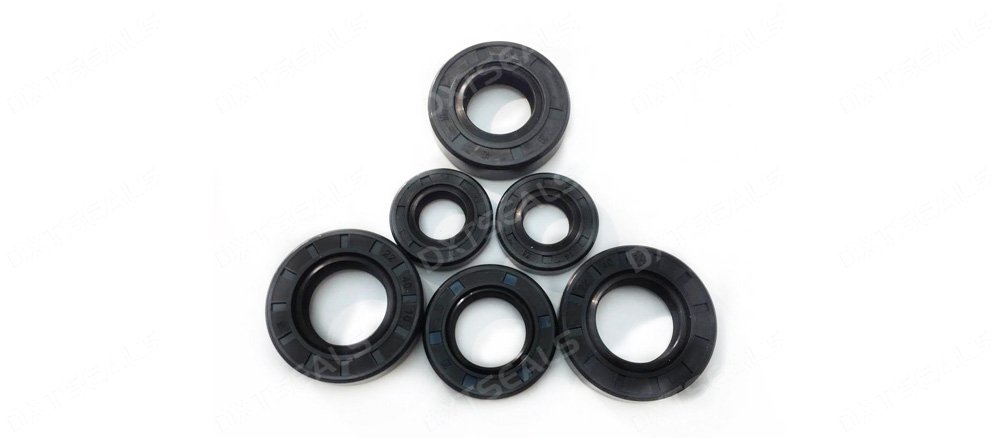
Rubber seals are indispensable components in industrial equipment, providing solutions that prevent leaks, protect machinery, and enhance overall system efficiency. This article explores the key features of rubber seals and their diverse applications in industrial settings.
1. Key Features of Rubber Seals
Rubber seals offer several important features that make them ideal for industrial use:
- High Flexibility: Rubber seals are highly flexible, allowing them to conform to irregular surfaces and create tight seals in a variety of equipment.
- Durability: Industrial-grade rubber seals are designed to withstand harsh environments, including extreme temperatures, high pressures, and abrasive conditions.
- Chemical Resistance: Depending on the rubber material used (e.g., NBR, FKM, EPDM), seals can resist exposure to oils, chemicals, and solvents, making them versatile for use in industries such as chemical processing and oil & gas.
- Compression Set Resistance: Rubber seals maintain their elasticity and shape even after repeated compression, ensuring long-lasting sealing performance in dynamic environments.
2. Types of Rubber Used in Seals
Various types of rubber materials are used for industrial seals, each offering unique benefits:
- NBR (Nitrile Rubber): Excellent oil resistance and mechanical properties make NBR seals ideal for automotive and hydraulic applications.
- EPDM (Ethylene Propylene Diene Monomer): Highly resistant to weathering, UV exposure, and ozone, EPDM seals are commonly used in outdoor industrial applications and in water systems.
- FKM (Viton®): Known for its superior resistance to high temperatures and aggressive chemicals, FKM rubber seals are used in harsh environments like chemical plants and oil refineries.
- Silicone Rubber: Offering flexibility and resistance to extreme temperatures, silicone seals are used in industries where temperature fluctuations are common, such as food processing and medical equipment.
3. Applications of Rubber Seals in Industrial Equipment
Rubber seals are widely used across various industries to maintain equipment integrity, prevent leaks, and protect against contamination. Some key applications include:
- Hydraulic Systems: In hydraulic machinery, rubber seals ensure fluid containment, preventing leakage and maintaining pressure within the system. NBR and FKM seals are frequently used in these applications for their oil resistance and durability.
- Pumps and Valves: Rubber seals in pumps and valves prevent fluid leakage, ensuring smooth operation in industries such as water treatment, chemical processing, and oil & gas.
- Heavy Machinery: Industrial equipment such as earthmovers and mining machines rely on rubber seals for protecting components from dust, debris, and harsh environmental conditions.
- Automotive Industry: Rubber seals are essential in engines, transmissions, and braking systems, where they provide airtight and fluid-tight sealing to ensure the reliability and performance of vehicles.
- Food and Beverage Equipment: Silicone rubber seals are widely used in food processing equipment due to their non-toxic nature and ability to withstand high temperatures without affecting food safety.
4. Advantages of Using Rubber Seals in Industrial Applications
- Leak Prevention: Rubber seals prevent leakage of fluids or gases, ensuring that machinery operates efficiently and reducing downtime due to maintenance or repairs.
- Longevity: The durability of rubber seals helps extend the life of industrial equipment by protecting internal components from wear and tear.
- Cost-Effective: Rubber seals are affordable, easy to replace, and contribute to lower overall maintenance costs for industrial equipment.
5. Conclusion
Rubber seals play a crucial role in maintaining the performance and reliability of industrial equipment. With their diverse material options and the ability to resist harsh conditions, rubber seals are used in a wide range of industries, from automotive to chemical processing. Understanding the key features and applications of rubber seals allows businesses to select the right sealing solutions to enhance equipment efficiency and longevity.
